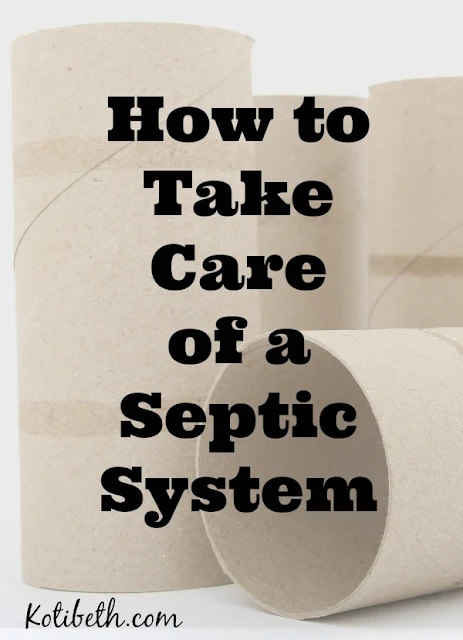The first two homes that my husband and I lived in were in the city limits, so we were connected to the sewer system. We moved to a farm four years ago, and now we have a septic system. My husband used to work for a waste water company, so he knew how to take care of it. I grew up with a septic system, so it wasn't new to me either. The only thing that I miss about being connected to a sewer system is my garbage disposal. Those are a no no with a septic system, unfortunately.
It's very important to take care of your septic system. If you don't, you could get septic buildup, which are plugged lines. If this happens, your septic system can leech in to your yard and even back in to your home! Trust me, this is not something you ever want to deal with. It's messy, and it's very costly to repair. Learn how to take care of your septic system to preserve it and avoid spending $1000s in repairs.
Don't Add Too Much Water
Be mindful of your water consumption when you have a septic because too much water can knock the biological system out of balance. If you add too much water, your septic can back up in to your house. We have a large tank, so this isn't an issue, but if your tank is smaller, this is something to keep in mind.
Enzyme Treatments
Using an enzyme treatment monthly can help prevent your septic from backing up. We use Roto-Rooter Natural Enzyme Septic Treatment because it has twice as many enzymes.
The enzymes work on paper waste, oils, fats, protein, and grease to eliminate them. It can help reduce odors and dampness in your leech field, and it helps prevent costly repairs.
What I love about Roto-Rooter, besides how well it works, is that I can buy a four month supply in one bottle. I don't have to guess how much to add because it has a chamber that you fill to measure out the correct amount.
To use an enzyme treatment, just pour it in your toilet once a month and flush. Yes, it really is that easy!
Chemicals and Your Septic
Watch what chemicals you dump down the drain. Common household cleaners are find when used in moderation. Drain cleaners, bleach, and household cleaners are all safe. What isn't safe is cleaning water for latex paint or rinsing out paint cans.
Food Waste & Other Items
As I said, garbage disposals and septic systems don't play nice. Don't put any cooking fat or coffee grounds down your drain. You also shouldn't flush paper towels, tissues, or other items that don't decompose.
Not all toilet paper is safe for a septic system. Some will not decompose quickly, which can clog your system. To test your tissue, wad up a few pieces and put in a jar half filled with water and shake the jar. If the tissue breaks up, it is safe for a septic system.
Do you have a septic system?
 |
| Roto-Rooter Gel Clog Remover |



